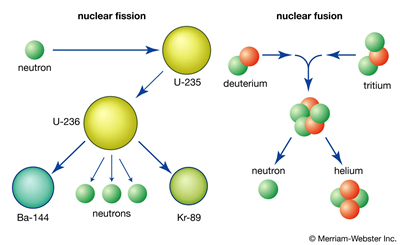Context
Nuclear energy stands as a pivotal player in the global energy landscape, especially as the world strives to address the pressing issue of climate change. The recent Nuclear Energy Summit held in Brussels underscores the increasing recognition of nuclear power's role in achieving carbon reduction goals. Co-chaired by Belgian Prime Minister Alexander De Croo and IAEA Director General Rafael Mariano Grossi, the summit drew attention to the indispensable nature of nuclear energy in combating climate change. This summit was a culmination of efforts highlighted during the UN Climate Change Conference (COP28) in Dubai in December 2023, where world leaders emphasized the necessity of tripling nuclear energy capacity by 2050 to meet climate objectives. Nuclear power's remarkable attributes, including its significantly lower carbon emissions compared to other renewable sources, its ability to provide uninterrupted energy, and its cost-effectiveness, position it as a critical component of the global renewable energy mix.
Urgent Need for Reassessment of Nuclear Financing Policies
Despite its potential, the nuclear energy sector faces significant challenges, particularly in terms of financing. Multilateral Development Banks (MDBs) and private investors have been hesitant to invest in nuclear projects, leading to a financing gap in the industry. The World Bank's absence from nuclear project financing since the late 1950s underscores the prevailing reluctance among financial institutions to support nuclear initiatives. To bridge this gap, there is an urgent need to reassess nuclear financing policies to accommodate private capital or blended financing models. These models can leverage both public and private sector resources to mitigate financial risks associated with nuclear projects and attract investment on a larger scale. By diversifying financing sources and adopting innovative financial mechanisms, such as cooperative funding models seen in countries like France, South Korea, Russia, and the U.K., the nuclear energy sector can unlock its full potential and contribute significantly to global decarbonization efforts.
State of Nuclear Infrastructure Development and Finance Mobilization
While the demand for nuclear energy is on the rise, the state of nuclear infrastructure development and finance mobilization remains disproportionate. Despite ambitious plans for nuclear expansion, exemplified by countries like China, challenges such as project overruns and rising costs have hindered progress in the nuclear industry. Companies like NuScale Power, Westinghouse, and Areva have faced setbacks, with project cancellations and bankruptcies signaling the need for more robust financing mechanisms and risk mitigation strategies. Moreover, the disparity between nuclear energy's potential and its actual contribution to the renewable energy mix underscores the urgency of addressing financing challenges. In India, for instance, despite the competitive cost of nuclear energy compared to other sources, barriers such as stigma, regulatory hurdles, and long project timelines have impeded widespread adoption.
India's Nuclear Energy Landscape
India's nuclear energy sector presents a unique case study, characterized by both challenges and opportunities. The country's first commercial nuclear power plant in Tarapur offers reliable energy at competitive rates, highlighting the economic viability of nuclear energy. The Kudankulam nuclear power project in Tamil Nadu further exemplifies India's potential to leverage nuclear power as a key contributor to its energy mix. However, nuclear energy's share in India's renewable energy portfolio remains modest, primarily due to concerns surrounding safety, regulation, and high upfront costs. Despite these challenges, recent developments signal a positive shift in India's nuclear industry, with plans for significant capacity expansion and investments in advanced nuclear technologies. Prime Minister Modi's endorsement of nuclear power and efforts to attract private investments underscore the government's commitment to unlocking the full potential of nuclear energy in India.
Conclusion
In conclusion, nuclear energy emerges as a vital tool in the global fight against climate change, with its unparalleled ability to provide low-carbon, reliable energy. However, realizing nuclear energy's full potential requires addressing critical challenges related to financing, infrastructure development, and public perception. By reassessing nuclear financing policies, leveraging innovative financial mechanisms, and fostering international cooperation, the nuclear energy sector can overcome existing barriers and emerge as a cornerstone of the clean energy transition. India's nuclear energy landscape serves as a microcosm of the broader global challenges and opportunities facing the nuclear industry, highlighting the need for concerted efforts to harness nuclear power's transformative potential. As nations around the world strive to achieve ambitious climate goals, nuclear energy stands poised to play a central role in shaping a sustainable energy future for generations to come.
|
Probable Questions for UPSC Mains Exam 1. Nuclear energy has been hailed as a crucial component in mitigating climate change and meeting global energy demands. Analyze the key challenges hindering the financing of nuclear projects, and discuss the importance of reassessing nuclear financing policies to accommodate private capital or blended financing models. How can innovative financial mechanisms, such as cooperative funding models, contribute to overcoming these challenges and unlocking the full potential of nuclear energy?(10 marks, 150 words) 2. India's nuclear energy sector presents both opportunities and challenges in its quest for expansion and modernization. Evaluate India's current nuclear infrastructure development and finance mobilization efforts, highlighting the disparities between potential and actual contributions to the renewable energy mix. Discuss the significance of recent policy initiatives and private investments in India's nuclear industry, and assess their implications for India's energy security and climate goals.(15 marks, 250 words) |
Source - The Hindu
























